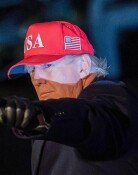S. Korea targets to become Top 3 EV producer by 2030
S. Korea targets to become Top 3 EV producer by 2030
Posted September. 29, 2022 07:38,
Updated September. 29, 2022 07:38
The South Korean government and the automobile industry set a target to raise its market share in the global electric vehicle market to 12 percent by producing 3.3 million electric vehicles by 2030. The country aims to become a Top 3 electric vehicle producer by investing a total of 95 trillion won by 2026.
At the office of the Korea Chamber of Commerce and Industry on Wednesday, the South Korean Ministry of Trade, Industry, and Energy held a round-table meeting with finished cars and automobile parts manufacturers, including Hyundai Motor Company, Kia, and GM Korea, regarding the automobile industry’s strategy. A strategy to become a Top 3 electric vehicle producer in the world was announced during the meeting. To achieve the goal, the industry plans to increase its global market share from five percent to 12 percent by expanding the current production volume of 254,000 cars to 3.3 million units by 2030. A detailed strategy to achieve the goal includes: 1) Becoming a global leader in electrification; 2) enhancing the flexibility of the overall ecosystem; 3) establishing a stable supply chain; 4) building new businesses in autonomous driving and mobility.
The detailed plan includes performance targets for electric vehicles and hydrogen cars. A target to reduce the time taken to quick-charge 80 percent of the battery from 18 minutes to five minutes by 2030 was set. A single-charge driving range should increase from 500 kilometers to 600 kilometers. The industry also plans to enhance hydrogen cars’ durability from the current level of 300,000 kilometers to 800,000 kilometers by 2030 and improve fuel efficiency from 13 kilometers per kilogram to 17 kilometers.
In addition, to address supply chain issues raised by the U.S. Inflation Reduction Act, the industry will domestically source 14 critical parts of electric and hydrogen vehicles, including large motors, which are currently imported 100 percent from Germany, and high-speed bearings, 90 percent of which are dependent on Japan. Ninety percent of electric and hydrogen vehicle materials will be sourced domestically, up from the current level of 70 percent. Given the automobile electrification trend, 10,000 software fusion talents will be trained by 2030, and an automobile software certification support center will be set up.
kalssam35@donga.com







